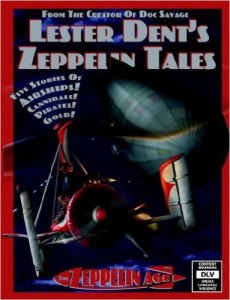Who doesn’t enjoy working a puzzle to a satisfying ending? That written, I have to confess I’m not a big fan of puzzles. I enjoy mahjong and I play chess and that is about the extent of my puzzle solving endeavors. So why do I enjoy reading mysteries? A good question that.
I have to confess, when it comes to mysteries, I’m pretty fussy. They pretty much need to be private detective stories told in the first person by the “Watson”. Third person narrative puts me right off. I’ll accept a story told by the detective in the first person. It’s just that it bugs the life out of me when he or she says he or she knows who did it but it won’t tell us.
The other thing I’m fussy about when it comes to mysteries, is that I don’t care a fig about the mystery. We all know the detective is going to solve the crime. So big deal. No matter how puzzling, the detective will undo Gordian Knot.
What I find fascinating is the detective him or herself. If he or she isn’t an interesting person, then the author has lost me. That’s because any story I read must have interesting characters who deal with the nitty-gritty of life. Machinations of plot hold no interest for me. It’s the people. After all, isn’t it people who make life interesting? And if people make life interesting, it is also people who make fiction interesting as well.
So if I don’t particularly like puzzles, why do I write mysteries? After all mysteries are considered to be literary puzzles. I write mysteries because crime and murder are part of life. The dark side of people interacting with people. Macbeth murders the king and sets off a chain of events. We know he won’t get away with it. What interests us is how his life falls apart.
We know Sherlock Holmes will solve the problem. What’s interesting is his interaction with Watson, the suspects, and how he goes about collecting clues.
When I watch a movie directed by Yasujiro Ozu, there is barely any plot to speak of. What’s of interest is the interaction of the characters and how they go about attempting to solve whatever is the problem in the story. And the problem is usually rather mundane.
For me, writing a mystery is no different than writing any other novel. I either start out with the characters or I start out with a scene and then people it. Then, as Ray Bradbury advised, I let my characters do their thing and the result is the story.
In writing my forthcoming Justinia Wright mystery, But Jesus Never Wept, I started with a scene: Tina and Harry’s client has just been murdered by seppuku, Japanese ritual suicide. That is what I started with. Along the way my daughter told me about the Yakuza, Japanese organized crime, I liked the color it could provide, and it entered into the story. How the Yakuza fit in I wasn’t sure, but figured that’s Tina’s job. She’s the detective, after all. I was over halfway through the book and had pretty much exhausted my list of characters before I figured out who did the murder and why. I was on pins and needles wondering if I’d finish the tale without solving the murder. Not really. Because Tina gets the culprit. It’s what detectives do.
Near the end of my short story “Minneapolis’ Finest”, Tina tells Harry:
“First off, Harry, you read too many mystery novels. Every case in those books is a complex puzzle and things blow up and people are being murdered left and right. Real detective work is, for the most part, dull routine. Boring even. If mystery writers wrote what really happened, they wouldn’t sell a damn thing. Cozies are the worst. I pray to God you don’t read cozies.”
“I don’t.”
“Good. Detective work is dull routine mostly because criminals are dull and boring twits with big egos.”
And I think that is very much the case. Real crime is boring. Therefore mysteries, to be interesting, are for the most part fantasy. Fictional murders are complicated, done by a mastermind for nefarious ends. No mystery writer writes about a normal murder. If they did, who’d read it?
Because most mystery readers are looking for the puzzle aspect, I don’t specifically call my mysteries “mysteries”. Justinia Wright is a private detective. The books are subtitled “A Justinia Wright, PI Novel”. The focus is on her as a person, not the puzzle. I think of it as I’m writing character-driven private eye stories.
In some ways I see The Maltese Falcon as the model. The Maltese Falcon is full of interesting characters, none of them, including Spade, are particularly likable. I think the mystery itself is weak, overshadowed by the MacGuffin. Did Brigid really kill Spade’s partner? Or did Spade just throw her under the bus? The story is a classic not because of the plot, the puzzle, in my opinion, but due to the interesting characters. And that’s why I read mysteries. And write them, too.
Share This!